Göran Olsson
Nacimiento : 1965-09-20, Stockholm, Sweden
Historia
Göran Hugo Olsson is a documentary filmmaker and manufacturer of his own innovation, the A-Cam, a Super-16 film camera. Has traveled the world making films for television since the late 80’s. Editor as well as founder of the short documentary TV program Ikon (SVT). Prior to that on SVT:s “Elbyl” series. Co-founder of Story AB where he made bold, strong and drastic films like “Fuck you, fuck you very much”. As well as commercials and music videos.

Producer
Amber belongs to a queer generation which no longer wants society to dictate their identity. The teenagers proudly inhabit a spectrum of fluid identities and master their first loves and losses.
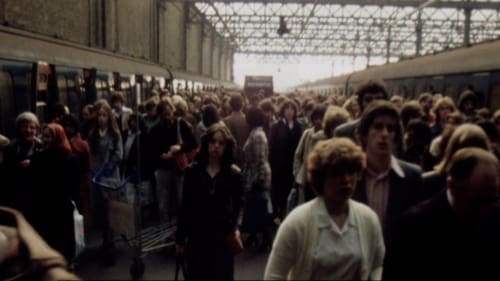
Writer
"England 79" - 17 scenes from Great Britain the winter of discontent, 1979.

Director
"England 79" - 17 scenes from Great Britain the winter of discontent, 1979.

Writer
The concept, the myth, month: May 1968. Student revolt, May revolt, Paris, Cannes, Båstad, The union house occupation, feminism, Biafra, Vietnam war. Filmmaker Göran Hugo Olsson paints a picture of the politically turbulent month by day with the help of the Swedish Television (SVT) archive and Maja Ekelöf's classic book "Rapport från en skurhink".

Director
The concept, the myth, month: May 1968. Student revolt, May revolt, Paris, Cannes, Båstad, The union house occupation, feminism, Biafra, Vietnam war. Filmmaker Göran Hugo Olsson paints a picture of the politically turbulent month by day with the help of the Swedish Television (SVT) archive and Maja Ekelöf's classic book "Rapport från en skurhink".
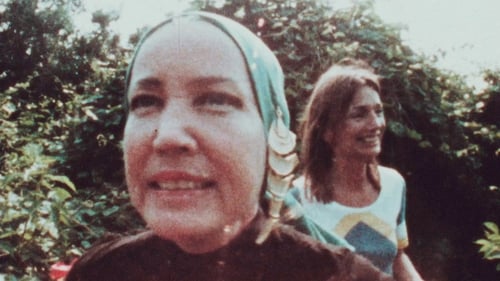
Editor
Albert and David Maysles' classic GREY GARDENS immortalized the estate of Edith and Little Edie Beale, relatives of Jacqueline Bouvier Kennedy, who lived in alarmingly poor conditions. But there is more to the story: it was Lee Radziwill and Peter Beard who first brought the Maysles to the Beales, when the two set out to make a film about Radziwill's childhood. The reels of that first contact were shelved for 45 years. This documentary recovers the lost footage. Anchored in Beard's recollections and artistic vision, we are returned to "that summer" in 1972, a seductive dream world and collage of radically unconventional creative personalities—Warhol, Bacon, Jagger, Capote—practicing the art of living amidst oppressive forces of class expectation and prejudice.

Director
Albert and David Maysles' classic GREY GARDENS immortalized the estate of Edith and Little Edie Beale, relatives of Jacqueline Bouvier Kennedy, who lived in alarmingly poor conditions. But there is more to the story: it was Lee Radziwill and Peter Beard who first brought the Maysles to the Beales, when the two set out to make a film about Radziwill's childhood. The reels of that first contact were shelved for 45 years. This documentary recovers the lost footage. Anchored in Beard's recollections and artistic vision, we are returned to "that summer" in 1972, a seductive dream world and collage of radically unconventional creative personalities—Warhol, Bacon, Jagger, Capote—practicing the art of living amidst oppressive forces of class expectation and prejudice.
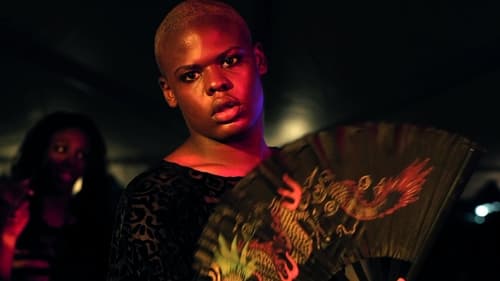
Associate Producer
25 years after Paris is Burning, we dive back into the fierce world of voguing battles in the Kiki scene of New York City, where competition between Houses demands leadership, painstaking practice, and performances on point. A film collaboration between Kiki gatekeeper, Twiggy Pucci Garçon, and Swedish filmmaker Sara Jordenö, we’re granted exclusive access into this high stakes world, where tough competitions act as a gateway into the daily lives of LGBTQ youth of color in NYC. The new generation of ballroom youth use the motto, “Not About us Without Us”. Twiggy and Sara’s insider-outsider approach to their stories breathes fresh life into the representation of a marginalized community who demand visibility and real political power.

Producer
While southern Europe is crumbling, Angola is the world’s fastest growing economy. In Africa’s rapidly developing cities, urban musicians are creating sounds that have come to define the new generation. Urban music like kuduro, coupé-décalé and azonto have arisen out of social change and have come to define a new African identity shaped by post-colonial consciousness.

Writer
While southern Europe is crumbling, Angola is the world’s fastest growing economy. In Africa’s rapidly developing cities, urban musicians are creating sounds that have come to define the new generation. Urban music like kuduro, coupé-décalé and azonto have arisen out of social change and have come to define a new African identity shaped by post-colonial consciousness.

Director
While southern Europe is crumbling, Angola is the world’s fastest growing economy. In Africa’s rapidly developing cities, urban musicians are creating sounds that have come to define the new generation. Urban music like kuduro, coupé-décalé and azonto have arisen out of social change and have come to define a new African identity shaped by post-colonial consciousness.

Editor
Concerning Violence is based on newly discovered, powerful archival material documenting the most daring moments in the struggle for liberation in the Third World, accompanied by classic text from The Wretched of the Earth by Frantz Fanon.

Writer
Concerning Violence is based on newly discovered, powerful archival material documenting the most daring moments in the struggle for liberation in the Third World, accompanied by classic text from The Wretched of the Earth by Frantz Fanon.

Director
Concerning Violence is based on newly discovered, powerful archival material documenting the most daring moments in the struggle for liberation in the Third World, accompanied by classic text from The Wretched of the Earth by Frantz Fanon.
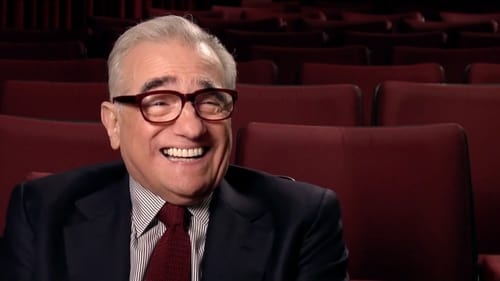
Sound
En los años sesenta, el cineasta sueco Ingmar Bergman (1918-2007) construyó una casa en la remota isla de Fårö, situada en el mar Báltico, dejó Estocolmo y se fue a vivir allí. Cuando murió, la casa fue conservada. Un grupo de cinéfilos muy especial, llegado de todo el mundo, viaja a Fårö en busca del genio y su legado. (Versión abreviada de «La videoteca de Bergman», 2012).

Camera Operator
En los años sesenta, el cineasta sueco Ingmar Bergman (1918-2007) construyó una casa en la remota isla de Fårö, situada en el mar Báltico, dejó Estocolmo y se fue a vivir allí. Cuando murió, la casa fue conservada. Un grupo de cinéfilos muy especial, llegado de todo el mundo, viaja a Fårö en busca del genio y su legado. (Versión abreviada de «La videoteca de Bergman», 2012).
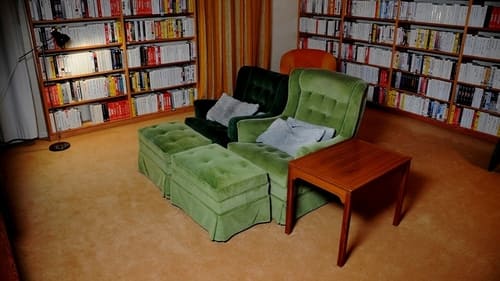
Sound
En los años sesenta, el cineasta sueco Ingmar Bergman (1918-2007) construyó una casa en la remota isla de Fårö, situada en el mar Báltico, dejó Estocolmo y se fue a vivir allí. Cuando murió, la casa fue conservada. Un grupo de cinéfilos muy especiales, llegados de todo el mundo, viajan a Fårö en busca del genio y su legado. (Documental estrenado en 2013, editado y abreviado, como Trespassing Bergman).

Camera Operator
En los años sesenta, el cineasta sueco Ingmar Bergman (1918-2007) construyó una casa en la remota isla de Fårö, situada en el mar Báltico, dejó Estocolmo y se fue a vivir allí. Cuando murió, la casa fue conservada. Un grupo de cinéfilos muy especiales, llegados de todo el mundo, viajan a Fårö en busca del genio y su legado. (Documental estrenado en 2013, editado y abreviado, como Trespassing Bergman).
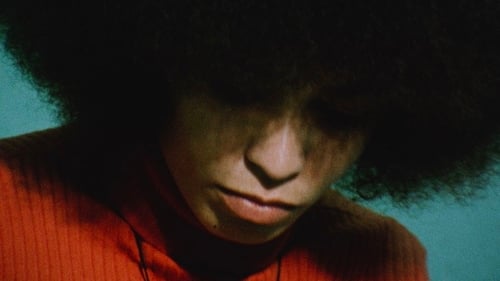
Writer
Durante más de treinta años ha permanecido oculto en una televisión sueca un material inédito sobre el movimiento estadounidense Black Power, pero ahora, una vez rescatado, se han puesto a disposición de todos las entrevistas, vídeos y reportajes que realizaron algunos periodistas del país nórdico en Estados Unidos, entre los años 1967 y 1975. Black Power fue un movimiento de defensa de los derechos de ciudadanos negros que se desarrolló en EEUU a finales de los sesenta y principios de los setenta. La protesta social reivindicaba el orgullo racial y cultural que suponía ser negro y demandaba igualdad de derechos políticos y sociales para toda la sociedad, independientemente de su raza.

Editor
Durante más de treinta años ha permanecido oculto en una televisión sueca un material inédito sobre el movimiento estadounidense Black Power, pero ahora, una vez rescatado, se han puesto a disposición de todos las entrevistas, vídeos y reportajes que realizaron algunos periodistas del país nórdico en Estados Unidos, entre los años 1967 y 1975. Black Power fue un movimiento de defensa de los derechos de ciudadanos negros que se desarrolló en EEUU a finales de los sesenta y principios de los setenta. La protesta social reivindicaba el orgullo racial y cultural que suponía ser negro y demandaba igualdad de derechos políticos y sociales para toda la sociedad, independientemente de su raza.

Creator
Durante más de treinta años ha permanecido oculto en una televisión sueca un material inédito sobre el movimiento estadounidense Black Power, pero ahora, una vez rescatado, se han puesto a disposición de todos las entrevistas, vídeos y reportajes que realizaron algunos periodistas del país nórdico en Estados Unidos, entre los años 1967 y 1975. Black Power fue un movimiento de defensa de los derechos de ciudadanos negros que se desarrolló en EEUU a finales de los sesenta y principios de los setenta. La protesta social reivindicaba el orgullo racial y cultural que suponía ser negro y demandaba igualdad de derechos políticos y sociales para toda la sociedad, independientemente de su raza.

Director
Durante más de treinta años ha permanecido oculto en una televisión sueca un material inédito sobre el movimiento estadounidense Black Power, pero ahora, una vez rescatado, se han puesto a disposición de todos las entrevistas, vídeos y reportajes que realizaron algunos periodistas del país nórdico en Estados Unidos, entre los años 1967 y 1975. Black Power fue un movimiento de defensa de los derechos de ciudadanos negros que se desarrolló en EEUU a finales de los sesenta y principios de los setenta. La protesta social reivindicaba el orgullo racial y cultural que suponía ser negro y demandaba igualdad de derechos políticos y sociales para toda la sociedad, independientemente de su raza.

Executive Producer
”There can only be an unhappy ending to this”, people say when they hear about Palestinian Osama and his Israeli wife Jasmin’s love. Their home countries separate them through racist laws and lack of security. They choose exile, but soon rosy dreams turn into despair in an inhospitable Europe. Will their love survive?

Producer
Includes 12 shorts directed by young female artists, directors and feminists to create "12 propositions to rethink pornography".

Director of Photography
A creative documentary about the song recorded by soul-man Billy Paul in the 70's. But also about the Philly Sound, Philadelphia, racism, cocaine, money and fame in the life and love of a beautiful elderly couple.

Director
A creative documentary about the song recorded by soul-man Billy Paul in the 70's. But also about the Philly Sound, Philadelphia, racism, cocaine, money and fame in the life and love of a beautiful elderly couple.

Producer
Three years in the life of Swedish singer Olle Ljungström.

Cinematography
In April 1975 Commando Holger Meins occupies the West German Embassy in Stockholm. In exchange for the hostages they want to force the release of RAF-prisoners in Germany; Andreas Baader, Ulrike Meinhof, Gudrun Ensslin, etc. The occupation lasts twelve hours and ends in defeat for the occupants, left is a blown-up Embassy and four people dead, two of them executed by the occupants. Karl-Heinz Dellwo, 23 years old, is arrested and sentenced to jail. In 1995 he is released from prison. Today he lives in Hamburg with his girlfriend Ella, also a former terrorist. Karl-Heinz is trying to create a new life for himself, but he is always haunted by his violent past.

Director
In 1996, the artist Leila K was nominated for the best album award, for her album "Manic Panic", in the Swedish Grammis Gallan. She ultimately lost the award to Dilba, and didn't take it very well. The day after, the Swedish newspaper Aftonbladet published a story about Leila K peeing on the floor at the award ceremony. Leila K filed a lawsuit against them, and was offered a chance to redeem herself. The documentary also covers how Leila K built her career and stardom, from the beginning with Rob'n'Raz and their world wide mega hit "Got To Get" in 1989, up to her second album of her solo career.











